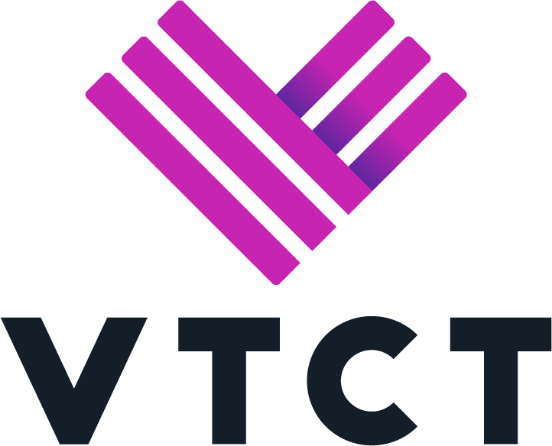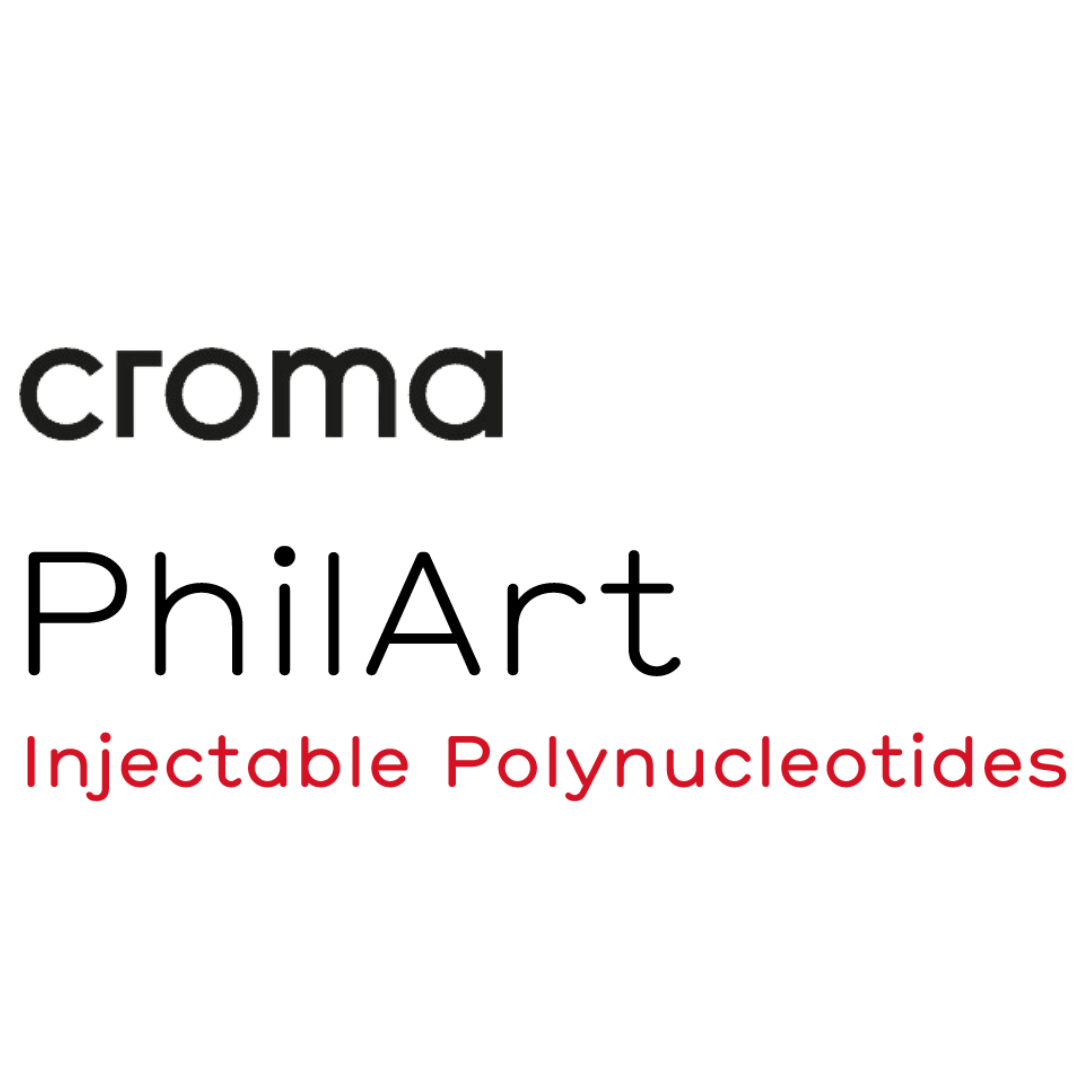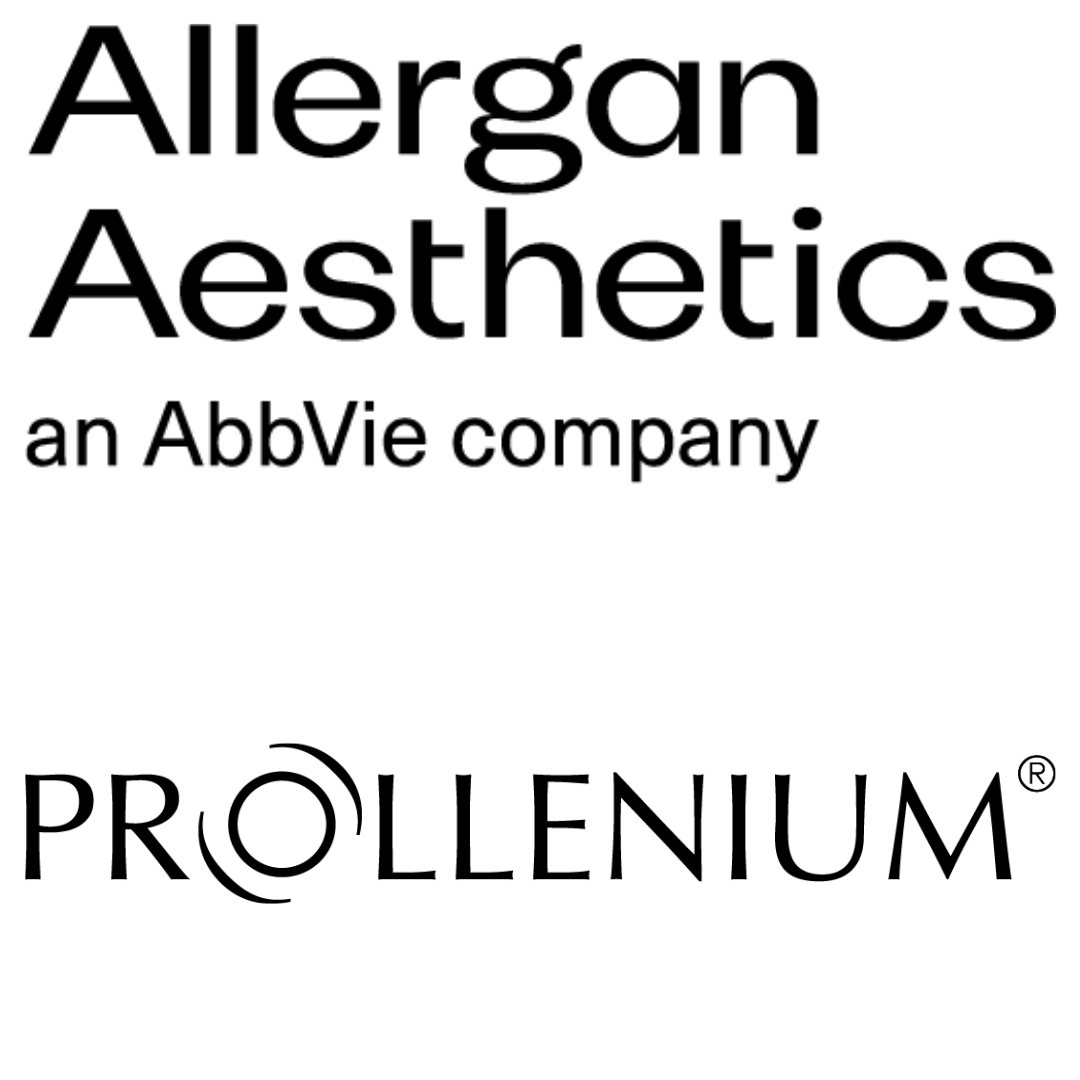Aesthetics Licensing Scheme Proposal Released

The long-awaited aesthetics licensing scheme proposal has been released. This marks the most significant headway in the regulation of non-surgical cosmetic procedures in England.
The details of its plans for aesthetics regulation were published on the Department of Health & Social Care (DHSC) website this morning.
It confirms that the government will be introducing a legally enforceable licensing scheme. At this stage, the focus is on defining each of the procedures that the scheme will relate to. Once the different tiers of procedures have been confirmed, setting the minimum standards of education required to practice each of these will be the subject of further review.
We spoke to Professor David Sines, CBE, to get his thoughts on some of the main points highlighted in the proposal. Prof. Sines is both Chair of the Joint Council of Cosmetic Practitioners (JCCP) and Harley Academy Licensing Advisor. He is a highly experienced and respected figure at the forefront of the push for patient safety and aesthetics regulation in the UK.
PROPOSED AESTHETICS REGULATION FOR ENGLAND
“So we now have the consultation paper,” states Professor Sines. “There are no new surprises for me in it and, I’m afraid, if you as an audience find this surprising or challenging then it’s a bit of a wake-up call… Nothing that’s come out in this particular consultation should be surprising.”
The government sets out in the report that, “The current regulatory framework places few restrictions on who can perform non-surgical cosmetic procedures…. We want to ensure public safety and public protection through a regulatory framework that enables consumers to make informed and safe choices when undergoing procedures which have the potential to cause serious injury or harm.”
It notes that, currently “competent practitioners who operate to high standards of best practice in relation to training, health and hygiene often find themselves in competition with practitioners and businesses with low levels of competence and who lack appropriate training in the procedures they offer.”
Stressing that “licensing will ensure consistent standards and protect individuals from the potentially harmful physical, emotional and psychological impacts of poorly performed non-surgical cosmetic procedures.”
Aims of the new aesthetics licensing scheme:
The government has stated the following aims for its new licensing scheme:
- “Identify the procedures that present a risk to the public
- Consist of two interlinked components: a practitioner licence and a premises licence
- Be administered and enforced by local authorities, who will work with a range of partners such as environmental health officers, trading standards officers and the Health and Safety Executive
- Make it an offence for an individual to carry out non-surgical cosmetic procedures without a licence
- Require those people who offer procedures to be suitably trained and qualified, hold appropriate indemnity cover, operate from premises which meet the scheme’s standards of hygiene, infection control and cleanliness
- Introduce a minimum age of 18 for those people seeking to receive the procedures licensed under the scheme.”
“At the heart of this is the government’s statement that it intends to enforce a new licence for aesthetics practitioners and a second, separate licence for premises,” says Prof. Sines. “That will come into play following consultation. And there will be more consultations next year as well.”
The government has confirmed that the licensing scheme will be operated by local authorities.
You can read the full report, entitled The Licensing of Non-Surgical Cosmetic Procedures in England, on the DHSC website. Here we explore and explain some of the key points…
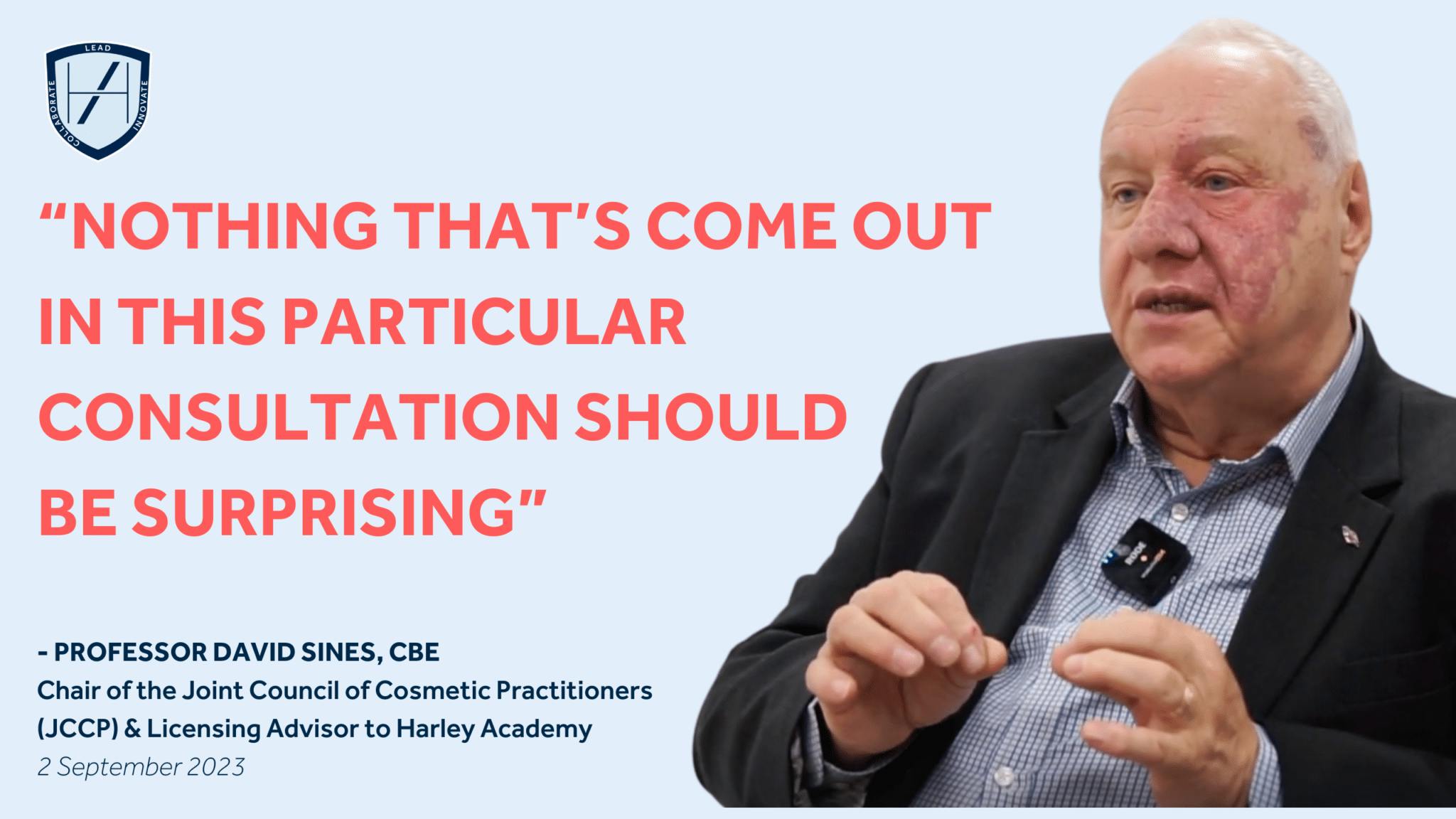
NON-SURGICAL COSMETIC PROCEDURES TO BE RAG-RATED
Aesthetic procedures encompass so many different treatment types that the government is seeking to RAG-rate them. This means grouping them into categories of Red, Amber and Green (RAG).
Professor Sines explains, “This consultation exercise focuses on the procedures themselves. It actually accepts many of the comments that the JCCP have presented. In fact, we produced three papers in March this year, setting out the procedures that we believe should be in scope of the new licence.
“We also said that those procedures should be divided into those procedures that present minor risk to members of the public, those that present a moderate risk of harm… And those that certainly should be classified as risky and presenting proportionate harm.”
“We also said that all of the procedures, whether they be minor, moderate or more severe, should be part of the licence. In other words, you shouldn’t be able to practice any of the procedures without a licence.”
Red-rated aesthetics procedures restricted to doctors and CQC-registered practitioners
“So, there will be, I think – subject to the consultation concluding,” he opines, “some red-rated procedures that only doctors or CQC-registered practitioners can undertake.”
“They are the liposuction, the breast and buttock augmentations. They are the cogs and the threads, and they are any aesthetics procedure that relate to intimate body parts,” confirms David.
“It suggests that we need to be very clear – these are high-level, high-risk procedures. Red RAG-rated.”
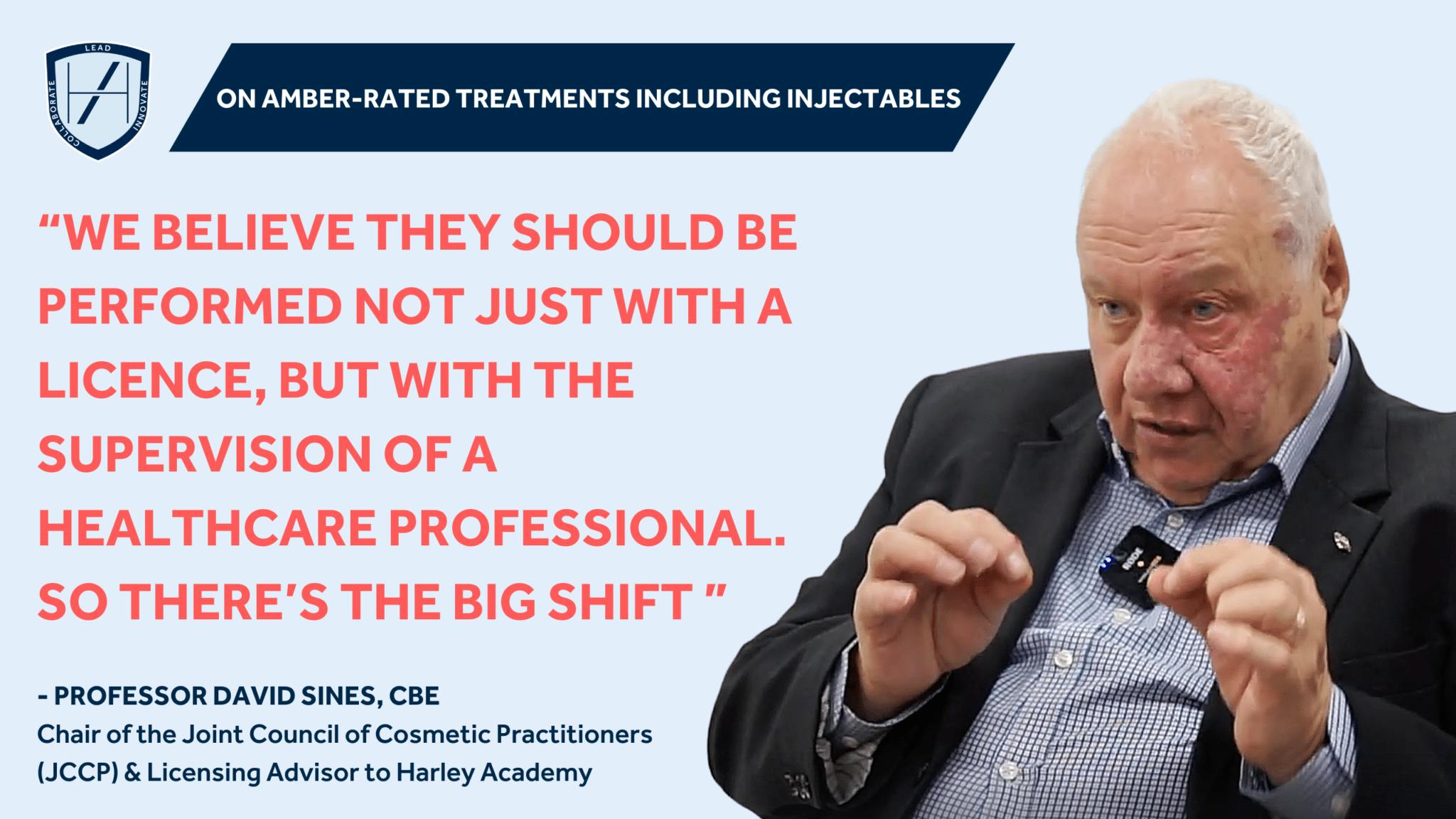
Amber procedures include injectables and will require non-medics to be supervised
The issue of non-healthcare professionals working in medical aesthetics is certainly divisive. RAG-rating procedures to be included in the aesthetics licensing scheme is the approach the government has proposed to tackle this.
Professor Sines describes the amber procedures, as follows…
“These are the ones that really penetrate the skin or relate to the use of a prescribed medicine. So it’s the injectable toxins, it’s the dermal fillers, the IV infusions. It’s the more invasive ablative lasers, the deeper, more penetrative chemical peels with a higher pH value. It also includes the weight loss injections, the hayfever injections – and I could go on and on, including plasma replacement therapy.”
“We believe they should be performed not just with a licence, but with the supervision of a healthcare professional. So there’s the big shift which is going to cause a lot of interest to members of the public.”
Green procedures to require a licence but no supervision
“The green procedures – they are important,” says David. “There are many of them, such as microneedling et cetera. They don’t require more than the licence; so they don’t need supervision.”
TIGHTER REGULATION OF DERMAL FILLERS
The potential for making dermal fillers a prescription-only medication had been discussed prior to this report. We have learned that these will be more tightly regulated by the Medicines & Healthcare products Regulatory Agency (MHRA). Dermal fillers are already classified as medical devices by the MHRA.
As the report states, the “MHRA is responsible for the regulation of medical devices and intends to bring into scope of the UK medical devices regulations products for which a manufacturer claims only an aesthetic or another non-medical purpose, but which are similar to medical devices in terms of their functioning and risk profile. This suite of products will include dermal fillers, which will consequently be subject to more stringent regulation.”
MINIMUM AGE REQUIREMENTS FOR AESTHETIC TREATMENTS
Professor Sines confirms, “There is a recommendation that all procedures should be restricted to people over the age of 18. We’ve already got the botulinum toxin and the fillers restricted. But that’s another question for consultation.”
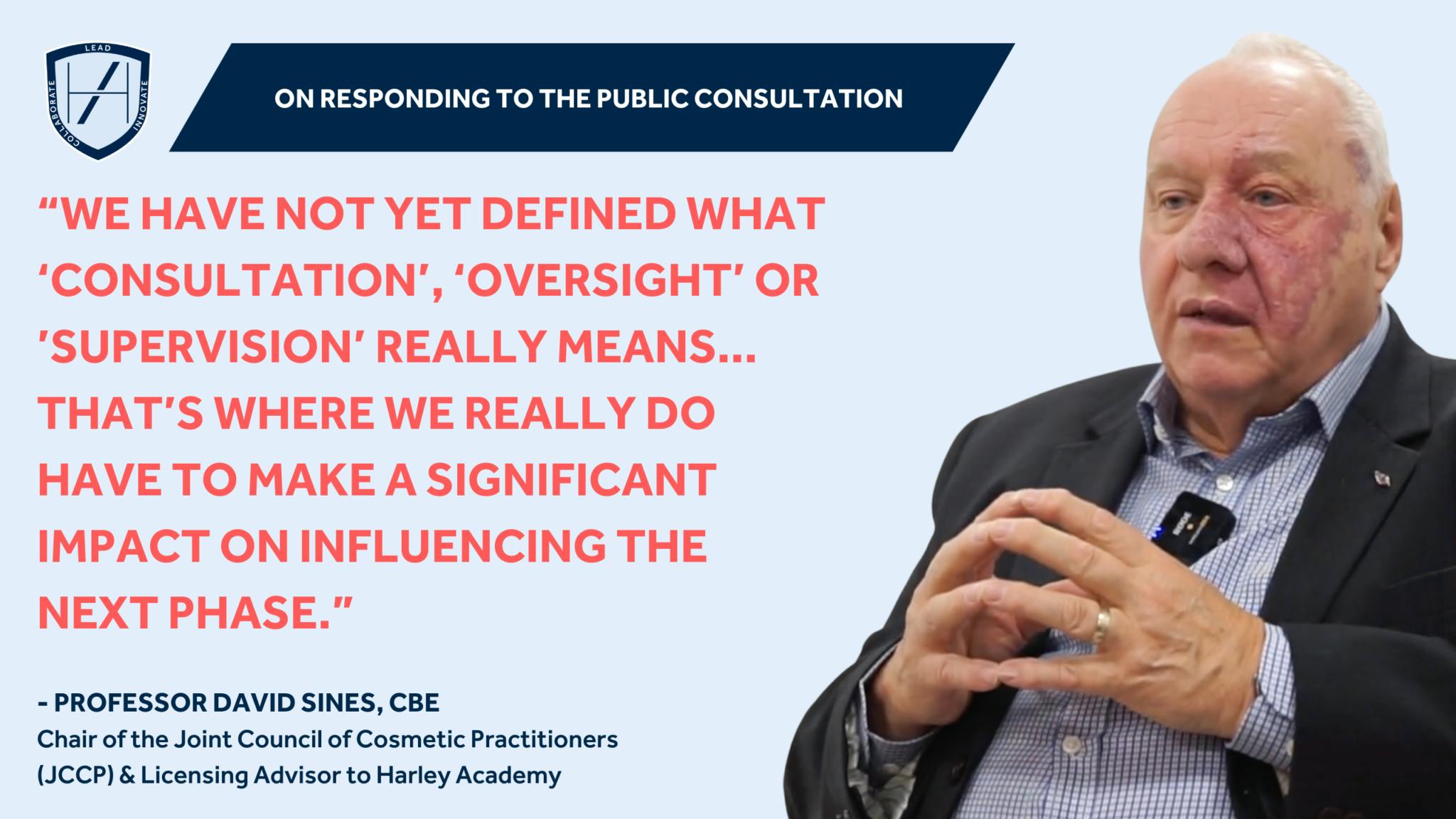
CONSULTATION TO DEFINE THE SCOPE AND MEANINGS OF TERMS SUCH AS 'SUPERVISION'
“What do we mean by ‘supervision’?”, asks Prof, Sines. “I can’t answer that yet. That’s going to be a big question. So, when you read the consultation and when you respond to it, note that we have not yet defined what ‘consultation’, ‘oversight’ or ’supervision’ really means. We will, of course, have to do that. We – I don’t just mean me… It’s all of us together and that’s where we really do have to make a significant impact on influencing the next phase.”
“You’re going to see the majority of questions that come through this consultation will be related to defining concepts of whether they should be RAG-rated. Red, amber, green. What procedures might have been missed in that licence – and there are some that I’m aware of that might be missed, such as teeth whitening, part of trichology, certain parts of tattooing onto membrane, such as the eyeball… but let’s get real here – not all tattooing. So there’s a lot of definition to go forward.”
“Big questions on the role of the CQC in all of this as well, and what that means for the future in helping us to define regulated procedures.”
AESTHETICS LICENSING SCHEME NEXT STEPS
The period of public consultation on these proposals starts now. This allows people throughout the industry and the public to feedback before the new aesthetics licensing scheme and regulations are finalised.
What this consultation on the aesthetics licensing scheme covers
The government stresses, “It should be noted that this is the first consultation on the licensing scheme. In this consultation, we are seeking views on:
The procedures in scope
Restrictions on which practitioners should be permitted to perform procedures
Age restrictions for those undergoing such procedures.
“Further work – including stakeholder engagement and public consultation – will be needed to determine the principles that will underpin the scheme including education and training standards, infection control and cleanliness, indemnity requirements and licensing fees.”
HOW THE JCCP WILL BE RESPONDING AND WHY YOU SHOULD TOO
“When we’ve concluded all of our comments, for the JCCP and for others, we will be putting all of that into a much bigger consultation which DHSC is leading,” notes David.
“Once that consultation concludes, then work starts on defining the aesthetics education and training standards and practice standards, and defining the actual scheme for licensing.”
“And the key questions – the role of the CQC, what does ‘supervision’ mean? What will those training standards look like? and How do I get my licence? – all of that will follow once DHSC has concluded this consultation, around the end of October .”
The eight-week consultation has been confirmed as running until 28 October 2023.
In his role as Chair of the JCCP, Professor Sines also states, “In recent years we have seen a massive growth in the number and types of non-surgical cosmetic procedures. Alongside this growth, we have seen a dramatic increase in the number of complaints about substandard treatments, unregulated cosmetic products and unsuitable treatment premises.
“All too often it is the NHS – and therefore the taxpayer – that has to pick up the pieces when a cosmetic procedure goes wrong. The Joint Council for Cosmetic Practitioners has seen a 400% increase in complaints in the last year alone, so we warmly welcome this important step towards proper regulation. Nothing is more important than public protection and patient safety.”
“I would urge everybody to seize the opportunity provided by this consultation and support the move towards sensible and proportionate regulation in this important sector.”
So what do you think of the proposals? Do you have any aesthetics licensing questions after reading through the paper?
Book a call with one of our course advisors to find out how these changes will impact you.
All information correct at the time of publication.




